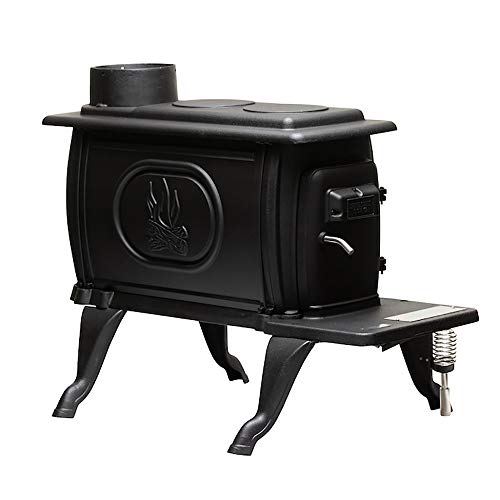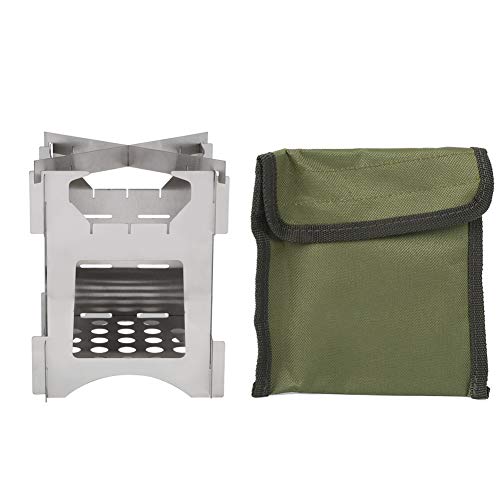12 Companies That Are Leading The Way In Wood Burning Stoves
페이지 정보
작성자 Lloyd Wisewould 작성일24-10-29 20:35 조회17회 댓글0건관련링크
본문
 garden wood burner Burning Stoves Near Me
garden wood burner Burning Stoves Near MeWood stoves are a stunning and efficient way to heat your home. However, there are many factors to consider when purchasing a new stove. Included are energy efficiency that is certified by the EPA and cost, as well the maintenance requirements.
Be careful not to become "number bound" and base your decision solely on a specific rating or BTU output. You should also consider aesthetics, suggestions from a trusted dealer and feedback from customers.
Cost
Wood stoves are a chic and elegant look to any house. They are available in a variety of colors and styles that will match any decor. They are also energy efficient and economical and offer a viable alternative to costly heating systems. There are several factors to consider prior to purchasing a new wood burning stove. This includes the initial cost of installation, as well as other things like chimney liner.
The cost of the stove is determined by the type and size that you choose. You can find a freestanding burner for less than PS700. This stove comes with a large viewing window, which is kept clean with a powerful airwash system. It is multi-fuel which means you can burn various fuels.
Noncatalytic wood stoves are much less expensive than catalytic ones, however they aren't easy to ignite and require more fuel to generate the same amount of heat. They release a higher amount of particulate matter than catalytic models. Despite these drawbacks however, the noncatalytic stove can be a good option for many customers.
Pellet stoves are another popular alternative to traditional wood burning stoves. They're similar to wood stoves however they use smaller pellets made from recycled materials or wood. They are easier to maintain than wood stoves, however they don't offer as much heat.
You'll need to think about the expense of installing an exhaust system when choosing wood or pellet stove. Certain wood stoves require an intake of combustion air from outside, while others require an exhaust system that connects to chimney. You may need to have your wood burner stove inspected by your local building inspectors, based on where you live and the building codes that are in force to your area.
If you're installing a wood stove inside an existing fireplace, you'll be able to spend less on installation. You'll have to install a chimney liner and you may have to employ someone to maintain the chimney on a regular basis. In addition the freestanding wood stove isn't able to be able to reach all rooms of a house on multiple floors, which means you'll need to install radiators in other areas to supplement the heat.
Energy Efficiency
The cost of electricity and gas continues to rise, many homeowners are looking for alternative methods of heating their homes. Wood stoves are among the most sought-after alternatives to traditional heating systems because they are a cost-effective and sustainable source of heating. They also burn cleanly, which reduces the amount of pollution that is in the air.
Modern wood burning stoves are incredibly efficient in energy use, which means they can produce more heat for your home with less fuel. This is due to a number of factors, including the fact that they feature smaller combustion chambers compared to older models. They also come with a catalytic combustion chamber that burns fuel more efficiently. They also produce less harmful emissions, which is crucial for those who live in an area that has to comply with more stringent standards for air quality.
Log burners are also more eco-friendly since they allow you to control the amount of air that is supplied to your fire. This lets it burn at a lower temperature for a longer time. This can help reduce the amount of smoke generated by the fire, and will also stop the formation of flammable creosote in your chimney.
Burning a variety of different kinds of wood, such as reclaimed and scrap wood, will create a better fuel mix, which will reduce the amount of waste gases produced by the burning. You can also collect unwanted wood that has been removed from construction projects and burn it in your stove. By doing this you can cut down on the cost of purchasing firewood, and also help save our forests.
Wood is a carbon neutral fuel since it's a renewable resource. The trees absorb carbon dioxide during their growth, and release it when they are burned and create an ecological cycle of living. By sourcing local wood you can also support the local economy while reducing your environmental footprint.
A fireplace that burns wood can be used as an emergency source of heat if there is a power outage. If you're able to store enough logs that you can to keep your home warm for several days. You can use your stove to cook and heat water.
Environmental Impact
Burning a wood small woodburning stove may have negative effects on the environment and your health, contingent on how well it is executed and the type of wood you use. outdoor wood fire stove burning releases harmful gases such as nitrogen oxides and carbon monoxide and fine particles referred to as PM (particulate material). The PM in smoke is made up of a variety of harmful substances such as black carbon, tar and soot. These pollutants have been linked to a range of health issues which include heart disease and respiratory problems.
The emissions released from wood-burning stoves contribute to global warming, which negatively affects the environment and the health of humans. Burning Best Wood Burners Uk can also release volatile organic compounds (VOCs), a major source of VOCs indoors. VOCs, a kind of pollution, have been linked to a variety of health issues, including headaches and irritation of the eyes.
VOCs can cause damage to the respiratory system, lungs, and circulatory systems. They also contribute to a variety of other environmental problems that include the loss of biodiversity as well as water quality issues and soil erosion. In certain areas, the concentrations of VOCs found in wood burners garden smoke may be higher than the standards set by the federal government.
According to a report from Undark Five states have provided incentives to replace older wood-burning models EPA certified models. However, a majority of these appliances offer only slight improvements over the previous models. They're also costly and require electricity for the controls, fans, and pellet feeders.
As a result, some environmental organizations have begun to abandon incentives to promote new wood stoves in favour of encouraging people to switch over to other sources of heat. The State of Oregon, for example requires homeowners to get rid of wood-burning stoves that are not certified and encourages them to heat pumps.
Wood stoves are more energy efficient than other heating methods, such as electric or gas furnaces. They generate a higher quantity of heat, using less wood than gas or electric counterparts. They are therefore an environmentally friendly and economical option for heating your home. However, they should be maintained and inspected regularly to reduce the amount of fuel required and increase efficiency. For instance, cleaning out unneeded feed systems and hoppers at the end of the season will minimize corrosion and ensure that the stove is ready to go again in the fall. Additionally, regular cleaning of the flue vents on your stove will prevent flammable creosote buildup.
Safety
Wood-burning stoves are a warm and cozy option for heating, but they also present dangers to fire that could threaten your family's health. Smoke inhalation can be a cause of fire and carbon monoxide poisoning and other serious issues. However, you can safeguard your family and home by following the correct safety precautions.
Make sure that your stove is installed and vented correctly. A certified professional should put in the chimney, flue pipe and connectors. Make sure the chimney is at least three feet above everything that could ignite, including overhanging trees as well as adjacent buildings. Install carbon monoxide and smoke (CO) detectors in every bedroom and on each floor of the house, and interconnect them so they all sound when one alarm goes off. Replace batteries and check your alarms on a regular basis. Keep combustibles, such as paper, garbage, plastics, and plastics away from your stove and don't burn them there or near it.
Don't leave a wood burning stove unattended. This is especially true at night. If your stove is located in a room with sleeping areas, close off the heat from the wood-burning stove and open the windows prior to when you go to bed. This will stop the smoke from entering your bedroom and cause CO poisoning.
Install an air-cleaning device if you are planning to use wood stove. These systems neutralize and absorb volatile organic compounds in the exhaust stream, before it exits the fireplace. Keep your stove clean, and keep the draft louvers, grate and draft hoods free of ash.
Wood smoke is dangerous to anyone however it is especially dangerous for children and older adults with weakened lungs. It can also trigger respiratory infections and asthma. Avoid using a wood stove on days when levels of pollution are high. The EPA and each state provides daily reports on the air quality.
Certain new wood stoves are more efficient than the old ones, but they still emit large amounts of pollutants into the air. Select a stove that has been endorsed by the EPA as being more than 72 percent efficient to limit the amount of pollution you are exposed to. Also, only burn dry, well-seasoned wood. This type of wood produces more heat and has less toxic substances than fresh green wood.

댓글목록
등록된 댓글이 없습니다.
